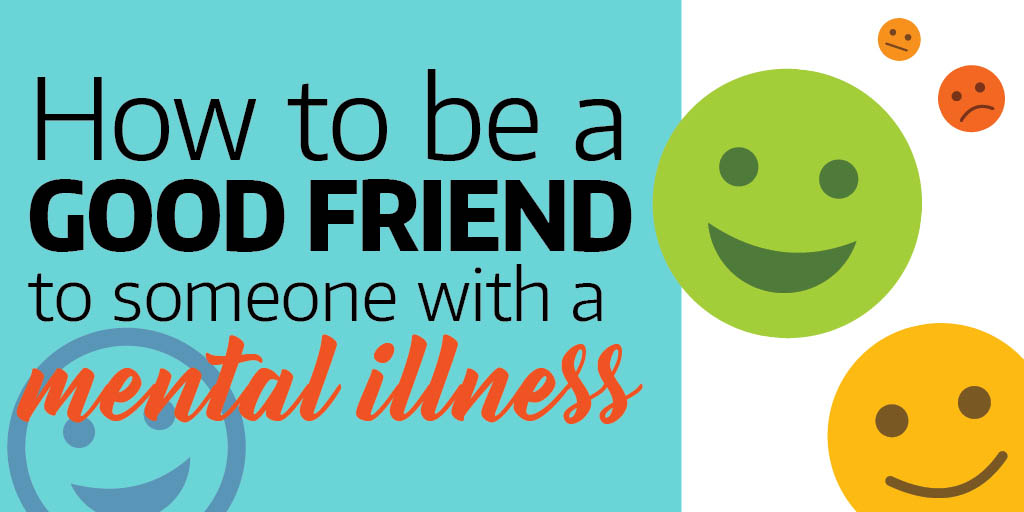How to be a good friend to someone with a mental illness

When someone close to you has a mental illness, it can be hard to know what you can do to help and if there is anything you can do. A lot of people feel the pressure of making their friends feel better which can be a lot of responsibility for one person. There are some things that your friend will appreciate; it's a lot simpler than you think: a listening ear and some compassion. Your friend is not expecting you to provide them with a fix-all simple solution but often just wants to be heard and have their feelings validated. Here are some things you can do for people who are struggling with a mental illness.
Educate yourself on their illness
When you find out that your friend has a mental illness, you can become more informed by doing some research. While your friend may not experience every symptom listed, it will give you insight to what they may be dealing with.
Ask them to explain more about what they're going through
Everyone's individual experience of mental illness is different. Getting their perspective will help you but will also allow your friend the opportunity to open up and express what they are going through.
Ask if there is anything you can do to help
Being willing to assist your friend in even the little things can be a huge help to someone in need. Asking if there is something specific you can do lets them know that you're willing to put the time and effort into their recovery and that they can rely on you when they need something.
Let them know that they are not alone
It is helpful for someone experiencing a mental illness to feel that they are being supported and are not alone. It would be even more difficult if they feel like no one cares for them. Having someone's shoulder to cry on and someone to reach out to is important. Knowing that they are not going to have to go through their struggles on their own is reassuring.
Be willing to go along with them to book an appointment
Going along to an appointment or being there when they sign up can be a relief to some people who are nervous to try new things on their own. It shows your friend that there is no shame in getting help and that you support their journey to recovery. Your presence may be the small push they need to make that step.
Set aside time out of your schedule to talk/ message
Intentionally setting aside time for someone makes anyone feel loved and important. For people experiencing mental illness, your time is valuable and knowing that you are thinking about them is encouraging. When you prioritize and set aside time for your friends they know that you care.
Help identify coping strategies and what works for them
Sometimes it can be helpful to discuss coping strategies and things that help them when they are feeling overwhelmed. Being able to identify these strategies will benefit them when they are struggling or in crisis.
Convey hope
Your attitude towards your friend's mental illness can change their outlook on their recovery and its normalcy. By conveying hope that things can get better, seeking help is beneficial and that it is not something to be ashamed of can help them see that there is a light at the end of the tunnel.
Don't stay silent
It is always important to keep your friends trust, especially when it comes to secrets. However, there is an exception to this rule. If you have any reason to believe that your friend is going to harm themselves or someone else you should tell someone. Some resources you can reach out to include the counselling and accessibility services at Fanshawe: 519-452-4282, the Ontario mental health helpline: 1-866-531-2600, Telehealth Ontario: 1-866- 797-0000 and if it is an emergency call 9-1-1.
For more information on how to support someone with a mental illness and information on specific diagnoses, visit the Canadian mental health association's website at cmha.ca and more specifically cmha.ca/mental-health/finding-help/family-caregiver-support//.














